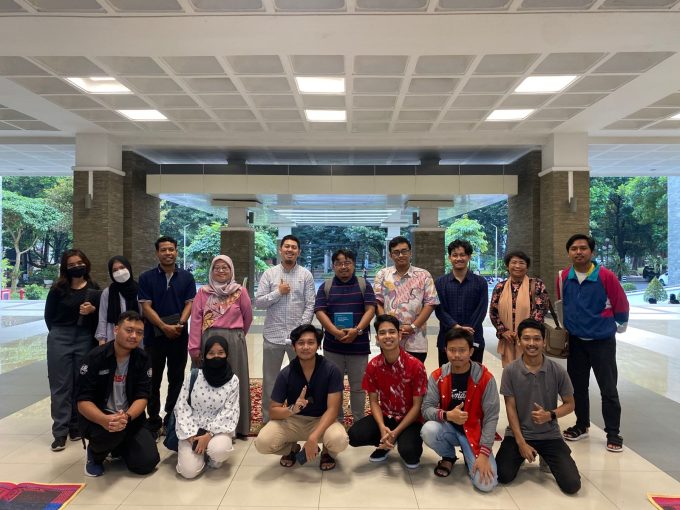
Yogyakarta, June 23rd 2023─Lecturer in the Department of International Relations, Dr. Luqman Nul Hakim, disseminated his doctoral research book at the University of Melbourne entitled ‘Islamism and The Quest for Hegemony in Indonesia’ in the monthly discussion of the Research, Publicatio, and Community Service Unit (UP3M) UGM. The discussion was held at the West Hall of FISIPOL UGM and moderated by a Lecturer at the Department of Politics and Government, Alfath Bagus Panuntun, E.N.I., M.A. on Friday (23/6).
This book places Islamic and political debates in three main discourses, namely nation state building, developmentalism, and democracy. This traces back the social context that made Islamic articulations appear and change and how the pattern of contestation is in each of these discourses.
In the section on nation state building, Luqman underlined three political discourses in Indonesia, namely Islamism, communism, and nationalism. Then, in the context of developmentalism, it began with corporatization by Soekarno who changed to Soeharto, related to Masyumi as an Islamic-based party which at that time was operating from politics and then changing its strategy to civil society.
“This had a big impact in the ‘80s, because when they moved in a civil society way, there were three advantages. First, they are not being suspected by the military. Second, they will be asked to send preachers to ex-communist areas. And third, they focus and establish da’wah around the campus,” explained Luqman. According to him, it was this process that formed the new political basis for Indonesian Islam at the beginning of the new order, which was called the Muslim generation in the 1990s.

At the end of the new order and the emergence of political liberalization, the complicated contestation of Islam in Indonesia coupled with the hegemonic global discourse that back then, cornered Islam as an agency. According to Luqman’s explanation, Islam is deemed not to be allowed to set up agencies because it is feared that it has a hidden agenda to Islamize Indonesia, for example through sharia regional regulations.
“Interestingly, the proponents of sharia regional regulations are not from Islamic parties, but politicians and bureaucrats or collaborations with other parties,” explained Luqman.
Finally, the choice of the title ‘Islamism and The Quest for Hegemony in Indonesia’ by Luqman was due to public questions about whether “Islam is hegemonic or not?”. According to Luqman, Islam is very fragmented and in fact creates polarization within Islam or Muslims themselves which is called Islamic populism. In his book Luqman also explains how the fragmentation of Muslims in Indonesia then gave rise to electoral populism.
